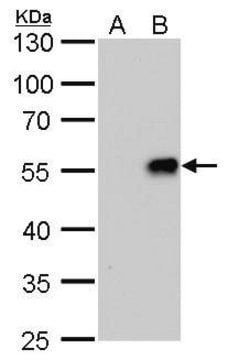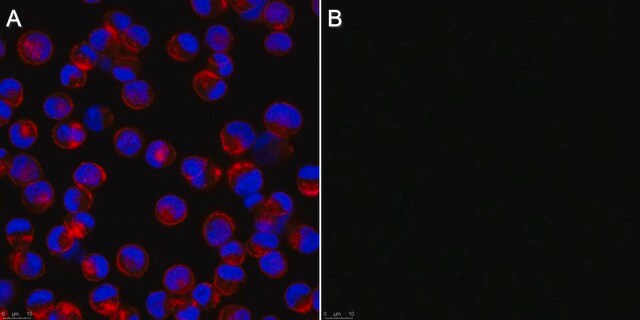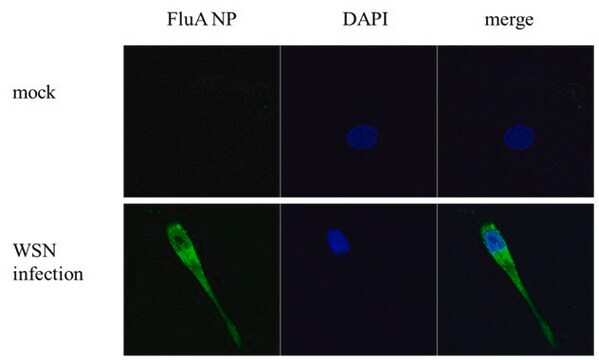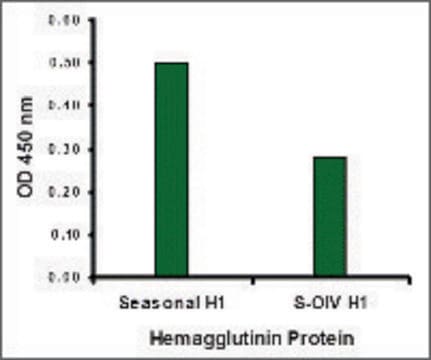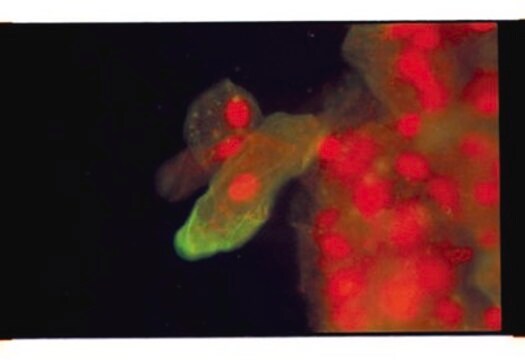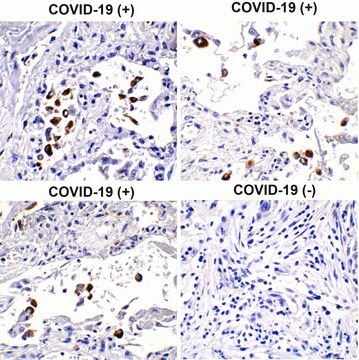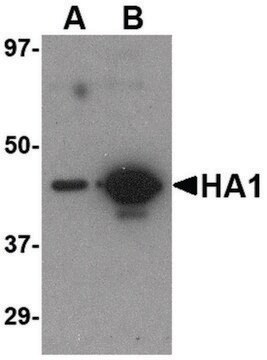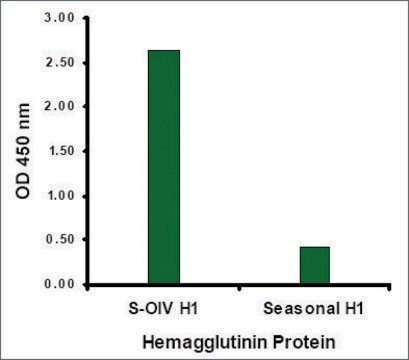SAB2702266
Monoclonal Anti-Influenza A virus H1N1 HA (Hemagglutinin) antibody produced in mouse
clone GT223, affinity isolated antibody
About This Item
WB
western blot: 500-3000
Recommended Products
biological source
mouse
Quality Level
conjugate
unconjugated
antibody form
affinity isolated antibody
antibody product type
primary antibodies
clone
GT223, monoclonal
form
buffered aqueous solution
species reactivity
influenza A virus
concentration
1mg/mL
technique(s)
indirect immunofluorescence: suitable
western blot: 500-3000
isotype
IgG1
shipped in
wet ice
storage temp.
−20°C
target post-translational modification
unmodified
General description
Immunogen
Application
Biochem/physiol Actions
Features and Benefits
Other Notes
Physical form
Disclaimer
Not finding the right product?
Try our Product Selector Tool.
Storage Class Code
10 - Combustible liquids
WGK
WGK 1
Flash Point(F)
Not applicable
Flash Point(C)
Not applicable
Regulatory Listings
Regulatory Listings are mainly provided for chemical products. Only limited information can be provided here for non-chemical products. No entry means none of the components are listed. It is the user’s obligation to ensure the safe and legal use of the product.
JAN Code
SAB2702266-100UL:
Choose from one of the most recent versions:
Certificates of Analysis (COA)
Don't see the Right Version?
If you require a particular version, you can look up a specific certificate by the Lot or Batch number.
Already Own This Product?
Find documentation for the products that you have recently purchased in the Document Library.
Customers Also Viewed
Our team of scientists has experience in all areas of research including Life Science, Material Science, Chemical Synthesis, Chromatography, Analytical and many others.
Contact Technical Service